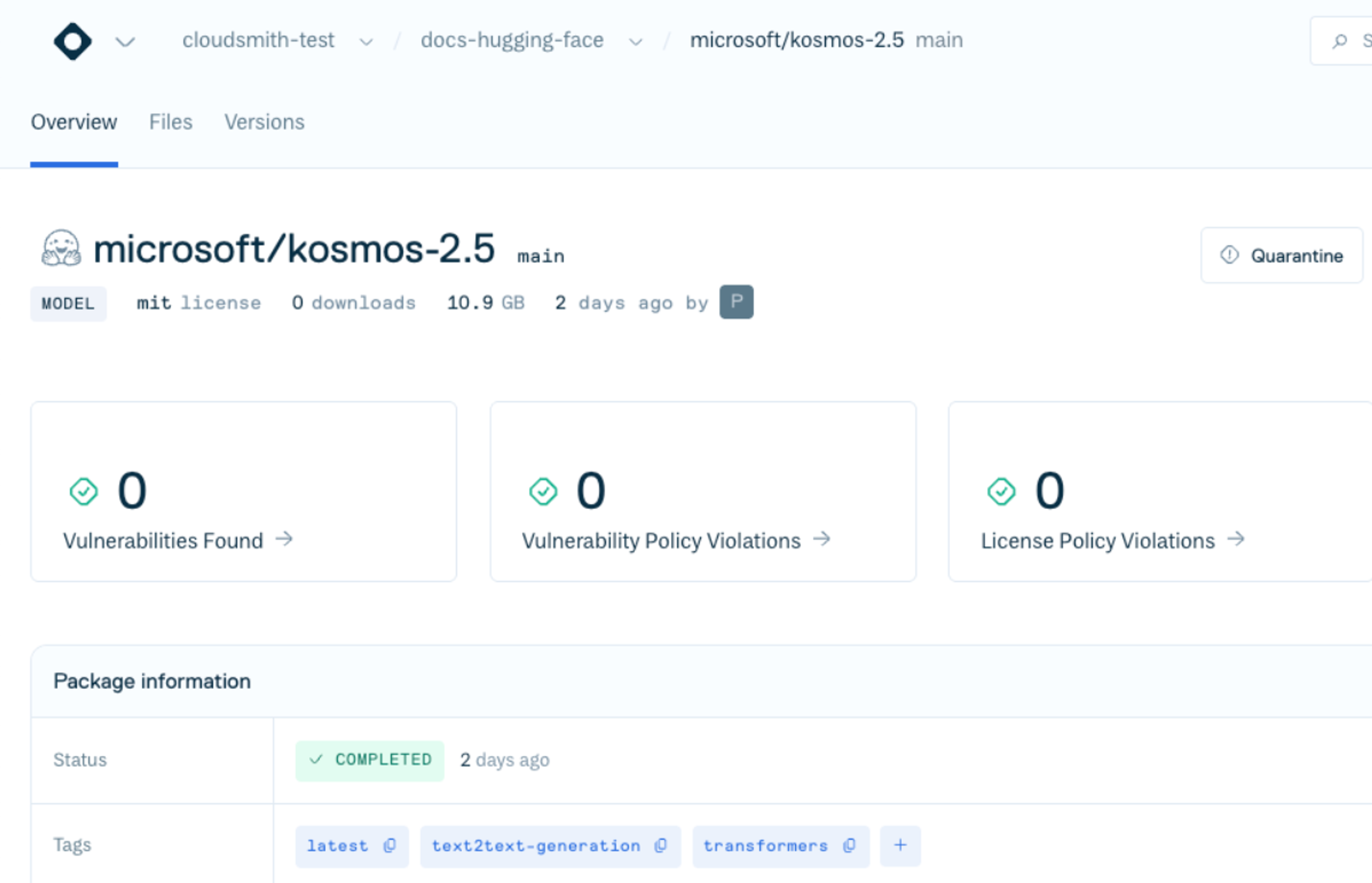Filter CVEs by severity in the package vulnerability view
You can now filter vulnerabilities by Common Vulnerabilities and Exposures (CVE) severity in the package vulnerability view, using the quick filter selectors…
You can now host and distribute your machine learning (ML) models and datasets using Cloudsmith. This brings the same security, governance, and cloud-native performance you already rely on for packages, containers, and binaries to your AI workflows.

huggingface_hub libraries.Learn more in the Hugging Face repositories docs, and contact us to request early access.
You can now filter vulnerabilities by Common Vulnerabilities and Exposures (CVE) severity in the package vulnerability view, using the quick filter selectors…
Cloudsmith now detects malicious packages using data from OSV.dev and the OpenSSF Malicious Packages project so you can see, stop, and govern open source packages designed to attack your supply chain before they reach your builds or customers…
You can now use Cloudsmith’s package search syntax to refine the scope of your repository's retention rules when configuring them via the Cloudsmith web application and via the Cloudsmith Terraform provider. This functionality builds on the existing support to scope retention rules by package search syntax via the API, and makes it easier to target exactly which packages to keep or remove…
Today we are releasing a refreshed and re-architected documentation website for Cloudsmith…
We've reduced the delay between a download event and its appearance in Client Logs, giving you faster visibility into your package delivery pipeline. This makes it easier to analyze trends, troubleshoot issues, and keep your workflows moving…
As part of upcoming improvements to our logging pipeline, we’ve made adjustments to our underlying data processing. These changes include the path and uri fields in the web application and the uri field in Client Logs exports…